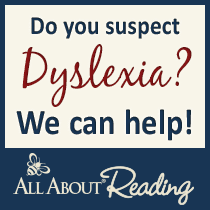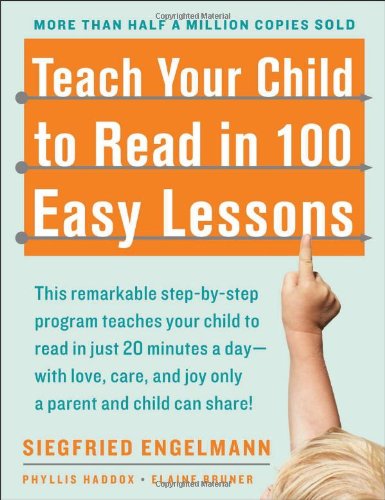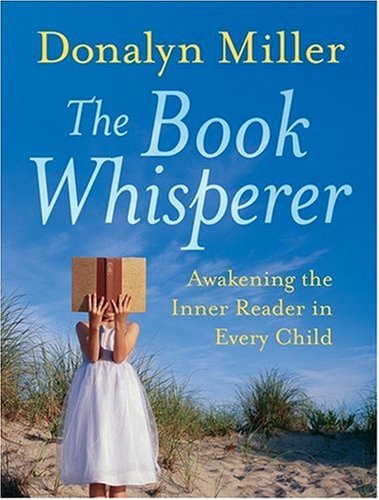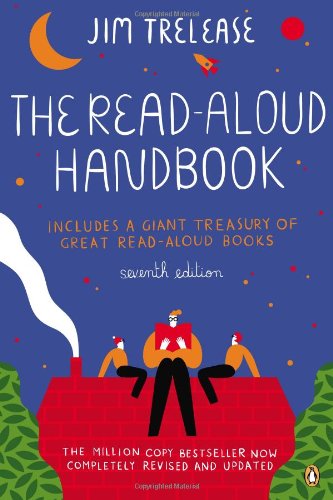"How will you teach them to read?"
That question was innocently asked of me many times when I first started homeschooling my children, and I must admit I wondered how I would teach them to read, too.
After all, I was brought up in a world where I believed professional teachers possessed some magical knowledge of teaching children to read. I was raised in a world where children were automatically "standardized" and believed only the "experts" could teach children to read, which led to me feeling grossly inadequate when I pulled my children out of public school.
Now that my children are high school and middle school -- and, by the way, both very good readers -- I can say with all certainty that children WILL learn to read. And, most often, they will learn to read without our interference.
If you want your children to learn to read, just step away and STOP teaching them.
Stop teaching them to read and start teaching them to LOVE words - to LOVE books - and to LOVE learning. You just might be amazed that they start reading in the process.
A Personal Story
If our children are growing up in a literature rich environment, I believe MOST OF THEM will learn to read on their own.
Yes, I realize there are children who will need more concentrated efforts, but for the most part if you just leave your children alone and provide the right stimuli, they WILL READ.
Consider my Anna. Anna was a very bright and curious public school Kindergartener. She loved pretend play, being read to, and singing. She was in a public school classroom and the emphasis was on reading... and the dreaded SIGHT WORDS.
Anna's mother (ahem - ME) wanted her to READ, so she drilled her on those sight words daily. She made fancy flashcards and wouldn't let her go outside to play after school until they had reviewed the flashcards.
Anna didn't respond so well to that. She would cry when it was time for sight word review (and mom would cry later). It was December and she wasn't reading. Her mom thought she would NEVER read, and it seemed like all of the other children in the class were reading.
Fast forward 10 years: Anna is a very good reader, but she still can tell you all about the sight word flash cards and how her mother was ridiculously obsessed with them. She learned to read (despite her mother's best efforts) in the first grade, when a very wise first grade teacher told her mother to leave Anna alone and just let her ENJOY books.
I look back on that realize how much I missed the mark with my daughter, Anna... and how that dramatically changed the way I would teach (or NOT teach) my younger child to read.
Create a Literature Rich Environment
By simply surrounding your children with books, reading aloud to them a lot, and modeling reading, I believe a child WILL learn to read.
As my oldest began reading and my youngest approached preschool, I developed quite a different approach in our home.
We started to simply ENJOY books. We had books everywhere, and I read out loud to my children every chance I could get.
I started shopping at used book stores, Scholastic book fairs, library sales, and anywhere I could find cheap books. We had a bookshelf in every room and book baskets all over the house.
My mom bought us our first set of Box Car Children books. I began collecting all of the Magic Treehouse Books and started reading them aloud.
I took my 3 three old son's interest (at the time it was "Cars") and amassed all of the Cars books I could get my hands on!
I focused on collecting sets of leveled readers and it was almost a game to see how many we could "read" each day. These books focused on phonics - I wouldn't make a big deal of pointing out the letter sounds, but with enough reading all of the dots began to connect themselves.
(I still have the collections of I Can Read! books in plastic tubs in the attic.)
We made a big deal out of getting the kids their own library cards, participated in the summer reading program at the library, and signed the kids up to "read" to therapy dogs at the library, too.
Lo and behold, my son began reading on his own during his preschool years. I had done NOTHING.
Well -- nothing except provide books, love, time, and mom and dad's laps.
Children will respond to true and beautiful things in their own time. If we simply get out of their way, reading WILL happen.
The goal isn't to get a child to read early... it is to get a child to LOVE reading.
The following books are ones that proved helpful in creating a reading environment in our home. There are many more - these are just some of the favorites!
Favorite "Learning to Read" Books
When Reading Instruction IS Necessary
Some people may not be comfortable with this more "relaxed" approach, and I get it.
Some children may pick up on reading more quickly than others -- other children may respond well to a gentle approach to teaching reading. Some children will have trouble reading, and then extra measures must be taken.
I spoke with a homeschool mom friend I trust and she offered me these thoughts on struggling readers. Clearly, All About Reading is a great place to start - and my friend uses it with her non dyslexic child, too.
“I’ve used All About Reading with my younger two boys. I researched and liked its multi-sensory approach and how easy it is to use. You just open it and go! All About Reading is user friendly. My main reason for picking it was to help my dyslexic child, but I also use it with my non-dyslexic child, and it worked great for him, too. Teaching my child to read was actually one of my biggest fears about homeschooling! Now I know that it can be done, even with a child who struggles. Other than that, we snuggle up and do read alouds a lot and one of them loves audiobooks. I think cultivating that love of hearing stories helps to inspire them to want to be able to read on their own as well.”
But I believe it is imperative that we don't PUSH OUR CHILDREN TO READ. Inspire them to read? Yes. Push them to read? NO!
I know some children that didn't read until the age of 8 or 9. But guess what? They DID start reading.
By FAR the most popular gentle introduction to reading is Teach Your Child to Read in 100 Easy Lessons. In just 20 minutes a day, children will receive solid reading instruction.
For a strongly based phonics approach, try The Ordinary Parent's Guide to Teaching Reading.
The other books I have featured simply help you, the parent, choose engaging and meaningful literature for your children.
I would love to hear YOUR reading story. How did YOU teach your children to read? How old were they? Or - did you just leave them alone and they learned to read by themselves?
Let's stop putting so much pressure on ourselves to teach these kids to read, and instead let's make our focus teaching them to ENJOY reading.

























